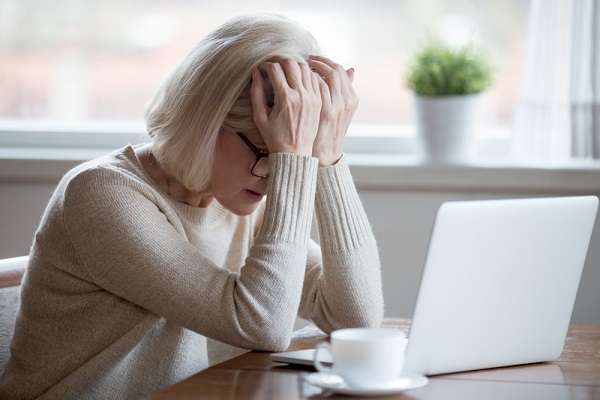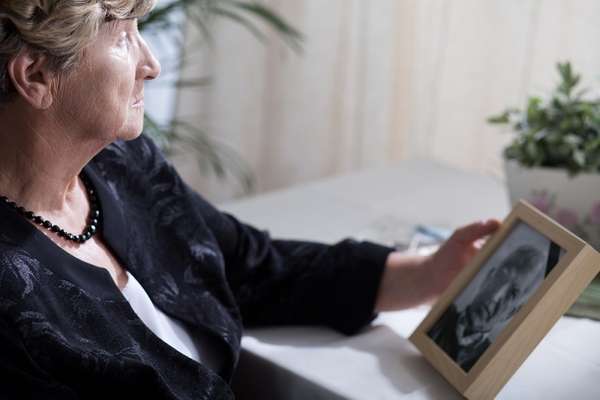- 14/06/22

What is loneliness and how is it defined?
In the Oxford Dictionary, there are two definitions of loneliness:
In this article we’re going to explore these definitions in a little more detail, look at how loneliness can be spawned by grief, consider the best ways to manage loneliness and examine the best resources out there to help combat loneliness.
Though loneliness is often thought to mean being alone, a person can feel lonely even when surrounded by an abundance of friends and family. That’s because loneliness is caused by the quality of connection with others, not just the companionship of others. Having just a few close friends where feelings and emotions can be shared, is better than having tonnes of distant ones who aren’t willing to provide emotional support.
Sharing problems, enjoying quality time with others, positively empowering each other, and intimately experiencing beautiful moments with others is what makes the heart sing and is the key to feeling free from loneliness.
But not all of us have access to these kinds of connections. In Robert Putnam’s book on the decline of communities in America, Bowling Alone, Putnam looked at the reasons behind the rise of loneliness in the United States and attributed it to changes in work, family structure, television, computers and suburban life.
This, he said, has caused people to retreat inwards as large swaths of the population have become too busy with everyday life to have the energy to build connections outside of their day to day lives. As a consequence of this, Putnam said, trust of others within communities began to decline. In America, this decline has led to 25% of people not feeling close enough to anyone to share a problem with. The percentage is similar in the UK.
So what are the consequences of this? Well, mighty.
According to a study from 2010, “if you have ‘adequate’ social connections, you are 50% more likely to live to the end of a specified period than those who are lonely.” Therefore, loneliness is as similarly detrimental to your health as smoking cigarettes or drinking excess alcohol.
Another study from 2012, found that those “aged 50 and above, found that being chronically lonely was associated with being almost twice as likely to die over the period of the study.”
Research from UCLA has shown that loneliness leads to a less healthy immune stress profile and more vulnerability to inflammatory processes, whereas social connectedness leads to longer life, faster recovery from disease, higher levels of happiness, and greater sense of purpose.
Looking at the research, it’s quite staggering to see just how much of an effect loneliness has on the body and on the mind. And this is never starker than when grief is involved.

When you hear someone say, “(s)he died from heartbreak”, it’s not far from the truth.
According to research conducted on 4,000 people, “a man whose wife has just died had a 25% higher chance of dying in the next 12 years than those men whose wife hadn’t died.”
The loss of a loved one can cause a real feeling of a hole within the heart. That feeling is real, and it’s not that we’ve just lost a person being around that causes that feeling, it’s that we have lost a dear connection that resonated deep within our being.
Someone who, in the case of the research, would have shared a life intimately together, shared stories, troubles and moments of joy. When a connection like that is withdrawn, it’s hard to replace. Sometimes it’s irreplaceable.
From there, it’s easy for things to spiral. This grief can cause people to retreat even further inward, it can cause a lack of confidence to go out and meet others, and a feeling of despair that they don’t have someone to share problems or happiness with like they did before.
But though the death of a loved one can have a devastating effect, there are things out there that help.
There are some great charities out there doing great work for those experiencing loneliness. The Bereavement Support charity Cruse are superb at providing support for those grieving. They have a free helpline (0808 808 1677) that is open throughout the week to call and they also have a livechat on their website.
For older people, there is Silver Line who operate a fantastic confidential free helpline 24/7 (0800 470 8090) where those feeling lonely can chat to an operator any time they’re feeling low or down, to share problems, laughs or thoughts.
There is also Meetup which is a great rendezvous which helps people to build real connections, make friends, explore interests or find support across the UK.
Aside from the charities and organisations out there doing great work, there is a lot we can do for ourselves too. Though in times of loneliness we can often crave compassion, research conducted by Stony Brook University and the University of Michigan also shows that expressing compassion and helping others has a tremendous effect on our own mental and physical well being, and makes us feel more connected to others and to society.
In the spirit of this knowledge, the Bereavement Support charity Cruse also offers volunteering positions for those passionate about improving the lives of bereaved people.
This positive outlook, compassion and altruism can have a deep effect. It can uplift our mind and spirit, and create a feeling of love and warmth towards others that will help us to navigate through the lows and coldness of loneliness.
As the Dalai Lama said, “Be kind whenever possible. It is always possible.”
Words that can be not only be applied to the way we treat others, but also to ourselves.
National Bereavement Service (Call: 0800 0246 121) - Provides free bespoke practical and emotional bereavement support
Cruse (Call: 0808 808 1677) - Free helpline supporting those suffering with bereavement or loss support
Silver Line (Call: 0800 470 8090) - Free 24/7 helpline for older people struggling with loneliness, sadness or lowness
Samaritans (Call: 116 123) - Free 24/7 support for anyone needing any kind of emotional support
Meetup - Rendezvous to help build connections, friends, explore interests and find support
Compassion meditation - A 30 minute meditation to strengthen feelings of loving kindness and compassion
Cruse volunteering - Volunteering opportunities to help those suffering with loss and bereavement
We have the knowledge and experience to help and support you through a difficult time. We can provide a wide range of information on the grieving process and bereavement. Contact us for more.